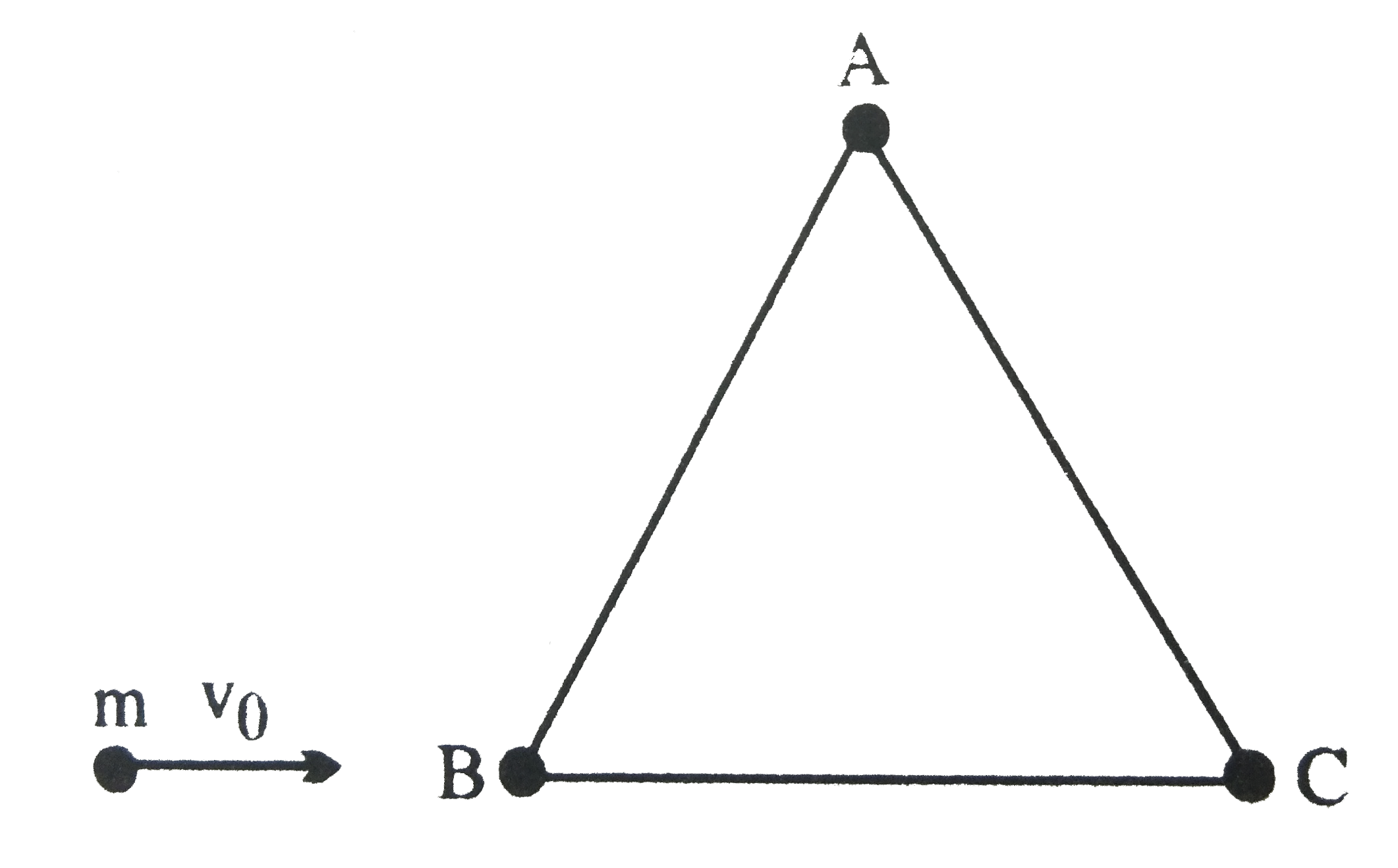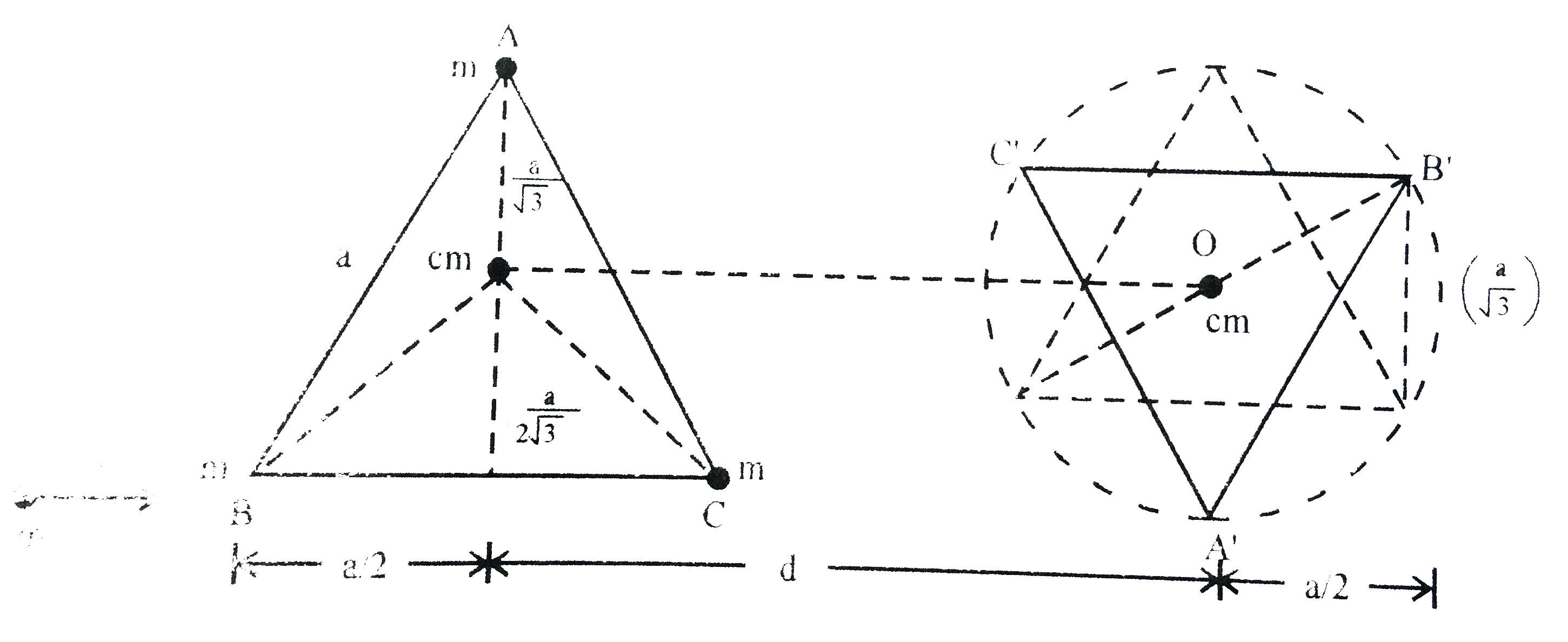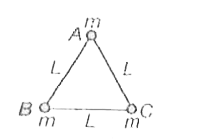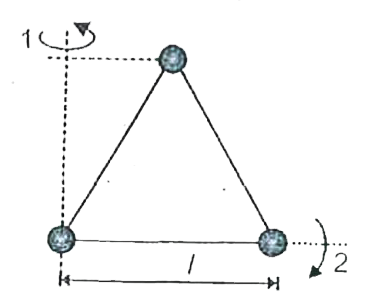Three particles A,B,C of mass m each are joined to each other by massless rigid rods to form an equilateral triangle of side a. Another particle of mass m hits B with a velocity v0 directed along BC as shown. The colliding particle stops immediately after impact.

(i) Calculate the time required by the triangle ABC to complete half-revolution in its subsequent motion.
(ii) What is the net displacement of point B during this interval ?
The correct Answer is:(i) t=6aπ√3v0 ;
(ii) s=a√3√1+(2π+√3)2.

Structure will have translational motion of C.M and rotational motion about C.M From conservation of linear momentum
mv0=3mvCM
vCM=v03
Impulse received by particle is mv0. Same and opposite impulse will be received by structure so angular impulse =Iω
mv0×a2√3=3m(a√3)2×ω
ω=v02√3a
(i) time taken to complete half revolution =πω
t=π(v0/2√3a)⇒t=2√3πav0⇒t=6πa√3v0
(ii) linear displacement
=
⎷(d+a)2+(a√3)2=
⎷(vCMt+a)2+(a√3)2
=
⎷(v03×6πa√3v0+a)2+(a√3)2=√a23(2π+√3)2+a23=a√3√(2π+√3)2+1.
Similar Questions
Three particles each of mass m are kept at vertices of an equilateral triangle of side L. The gravitational field at centre due to these particle is
View SolutionThree particles A,B and C each of mass m are lying at the corners of an equilateral triangle of side L . If the particle A is released keeping the particles B and C fixed , the magnitude of instantaneous acceleration of A is

View Solution
Knowledge Check
Three particles each of mass m are kept at the vertices of an euilateral triangle of side L. The gravitational field at the centre due to these particle is
AzeroB3GML2C9GML2D2GML2Three particles each of mass m are palced at the corners of an equilateral triangle of side b. The gravitational potential energy of the system of particle is
A−3Gm22bB−Gm22bC−3Gm2bD−Gm2bThree particles each of mass m are kept at vertices of an equilateral triangle of side L. The gravitational field at centre due to these particle is
AzeroB3GML2C9GML2D12GM√3L2
Three particles each of mass 2kg are at the corners of an equilateral triangle of side √3m. If one of the particles is removed, the shift in the centre of mass is
View SolutionThree particles each of mass m are kept at the vertices of an euilateral triangle of side L. The gravitational field at the centre due to these particle is
View SolutionThree particles each of mass m are placed at the three corners of an equilateral triangle of side L. A particle of mass M is kept at the midpoint of any one side. What is the force acting on M, due to this system of 3 particles ?
View SolutionThree particles A,B and C each of mass m are lying at the corners of an equilateral triangle of side L . If the particle A is released keeping the particles B and C fixed , the magnitude of instantaneous acceleration of A is

View SolutionThree particle each of mass m are placed at the corners of equilateral triangle of side l

Which of the following is/are correct ?
View Solution

